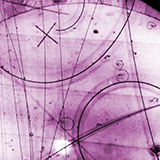Hobbes & Spinoza
19 October 2013
10:00am - 6:30pm
Center for Philosophy of Science
817 Cathedral of Learning
University of Pittsburgh
Pittsburgh, PA USA
::: CLICK FOR DETAILED PROGRAM
Registration is appreciated, but not required. To register, email pittcntr@pitt.edu
In the last decade many claims have been made to the effect that Spinoza is the father of modernity, particularly of liberal democracy. It is further claimed that the new visions and practices of the sciences, especially natural philosophy, supported this approach to understanding the world. Yet it seems that Thomas Hobbes, a materialist and mechanist, preceded and articulated many similar views. Hobbes published theories about the nature of natural philosophy, about explanations by causes, about method and how scientific knowledge is gained, about the science of government, and about the relations between science and religion. This workshop will discuss in detail the relations between Hobbes and Spinoza, while acknowledging and exploring the different projects that each had.
The organizers believe that a workshop should primarily be a forum for discussion. No papers will be delivered. Discussion sessions, divided by theme, will each have a coordinator who will provide 5 minutes of opening remarks. The sessions will be as follows:
- THE NATURE OF PHILOSOPHY. The parts of philosophy and their relation to one another. In particular, the scope of natural philosophy, the nature of causality, and its relation to ethics and politics. Hobbes’ Elementa project and its relation to the project of the Ethics. Where do the TTP and the TP fit in?
- PHILOSOPHICAL METHOD. Analysis and synthesis in Hobbes, and the role of definitions. Relations between Hobbes’ method and the geometrical method of the Ethics. Again, how do the TTP and the TP fit in?
- THE IDEA OF A SCIENCE OF POLITICS. What that means, in different ways, for Hobbes and Spinoza. For Hobbes the state begins when we leave the state of nature. Do we ever leave the state of nature according to Spinoza?
- NATURALISM. Naturalism in Hobbes and Spinoza, similarities and differences. Is Spinoza’s call for realism in politics in the opening chapter of the TP directed against Hobbes?
- RELIGION. What roles does religion play in the politics of Hobbes and of Spinoza? How do they each use Biblical interpretation?
Texts for discussion will be identified and circulated.
Participants
Marcus Adams (University of Pittsburgh)
Zvi Biener (University of Cincinnati)
Ed Curley (University of Michigan)
Francesca di Poppa (Texas Tech University)
Peter Distelzweig (Western Michigan University)
Torin Doppelt (Queen’s University)
Sandra Field (Yale University-NUS)
Dan Garber (Princeton University)
Nicolas Gooding (UC-Berkeley)
Geoffrey Gorham (Macalester College)
Michael Green (Pomona College)
Vasiliki Grigoropoulou (University of Athens)
Susan James (Birkbeck, University of London)
Doug Jesseph (University of South Florida)
Sarah Kizuk (Memorial University)
Julie Klein (Villanova University)
Michael Le Buffe (Texas A&M University)
Juhana Lemetti (University of Helsinki)
Peter Machamer (University of Pittsburgh)
Al Martinich (University of Texas, Austin)
Yitzhak Melamed (Johns Hopkins University)
Steven Nadler (University of Wisconsin, Madison)
Martine Pecharman (CNRS, Paris)
Alison Peterman (University of Rochester)
Christina Rawls (Duquesne University)
Kathryn Tabb (University of Pittsburgh)
Ericka Tucker (CSU Pomona)
Organizing Committee
Peter Machamer, University of Pittsburgh, Department of HPS
Dan Garber, Princeton University, Department of Philosophy
Marcus Adams, University of Pittsburgh, Department of HPS
Kathryn Tabb, University of Pittsburgh, Department of HPS
Sponsors
Center for Philosophy of Science, University of Pittsburgh
Humanities Center, University of Pittsburgh
Contact
pkmach@pitt.edu or pittcntr@pitt.edu
|


![]()
![]()
![]()
![]()
![]()